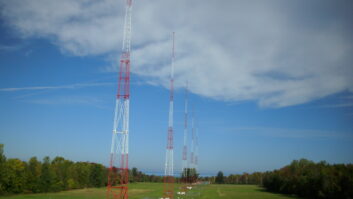
Joy Radio Logo. Photo by Lameck Masina BLANTYRE, Malawi — The art of poetry in Malawi has tremendously improved in recent years — this is in part thanks to the country’s radio stations.
Many poets in Malawi can now walk with their shoulders held high, as the society recognizes them as celebrities, alongside famous musicians, dramatists and film actors.
INCREASED PROGRAMS
Until 2006, only one radio station, the state broadcaster, Malawi Broadcasting Corp., had a weekly program airing poems, and only for 10 minutes per day during weekdays. The broadcaster would occasionally incorporate poems into its one-hour magazine program “The Morning Basket,” which aired Monday to Friday.
But now, almost all radio stations air poetry programs, many of them with airtime ranging from 30 minutes to one hour twice a week. These include Joy FM, Star FM, Matindi FM, MIJ FM, Ufulu FM, Radio Maria and Radio Islam. The privately owned Joy FM radio pioneered the introduction of all-poetry radio programs into its schedule in 2006.
Today, Joy FM airs its poetry program, “Patsinde” (“Under the Tree”) for two hours on Saturdays from 8 a.m to 10 a.m and on Wednesdays in the evening for an hour.
Producer and presenter of the show, Blessing Cheleuka told RWI that the idea came about when the station employed the renowned poet, the late O’Brien Nazombe, as a presenter for its other programs.

Blessings Cheleuka is producer and presenter the program “Patsinde”
at Joy FM in Blantyre, Malawi. Photo by Lameck Masina
“It was after he convinced the management on the need to introduce the poetry program that this program started,” said Cheleuka. “The management realized that apart from many artists that the station had been promoting, there was indeed another form of creative art which was unknowingly been ignored.”
He explained that the program instantly attracted a whole new audience, in addition to its regular listeners. Most of them bombarded the station with phone calls, while some physically approached them for copies of the poetry CDs.
“It also helped the poets to start earning a living from their work because we would refer the listeners to the poets themselves so they could sell their work,” he said.
One of Malawi’s celebrated female poets, Evelyn Pangani, a journalist by profession, says she decided to release an album, which contained her work “following frequent calls from radio listeners to share her poems.”
EXTRA EFFORT
Another poet, Robert Chiwamba a graduate of the Chancellor College of the University of Malawi, says he has produced two albums, which are faring well on the market.
Chiwamba released his first album “Chanco Mu Nthawi Yanga” (“Chancellor College in My Time”), which contains 31 poems and was produced in 2012.
His latest album, “Kwa Mayi Chiwamba” (“To Mrs Chiwamba”) will be released at the Blantyre Cultural Centre, in November.
Chiwamba doesn’t entirely agree that radio stations should take all the credit for the current popularity poetry is enjoying in the country, however.
“What I can say is that poetry has marketed itself to the public and to the radio stations,” he said. “This is because there has been significant change from poetry of the past, which was rich in parables and idioms, and sometimes hard to understand. Today, poetry is more accessible and can reach a wider range of social levels.”

Radio Islam Station Manager Yusuf Chinyada initiated the “Chola Changa” poetry program at the station. Photo by Lameck Masina
He also believes that radio stations can do better to promote poetry than they are doing now.
“They could start incorporating poems in even nonpoetry programs as they do with music interludes in between other programs or even add poems to advertisement slots, like what they do with background music during advertisements,” he suggests.
Radio Islam, which airs “Chola Changa” (“My Luggage”) has become quite innovative in promoting poetry. Its station Manager Yusuf Chinyada, who is the founding producer and presenter of the biweekly one-hour program, says the station organizes live performances of the program outside the studio.
“What we do is we book a venue outside the broadcasting house from where we present the program live but off air,” explains Chinyada. “We strive to give our audiences a chance to watch their favorite poets perform live.”
He says the proceeds from the entry-fee charges are shared among the poets. “We don’t aim to profit from the live performances. It only helps us collect material so we can record in our studios,” he says.
Due to poetry’s gaining popularity, the Copyright Society of Malawi has announced plans to include poets among beneficiaries of royalties for the works aired for commercial purposes — a move the National Poetry Association of Malawi has welcomed.
Lameck Masina reports for Radio World from Blantyre, Malawi.












